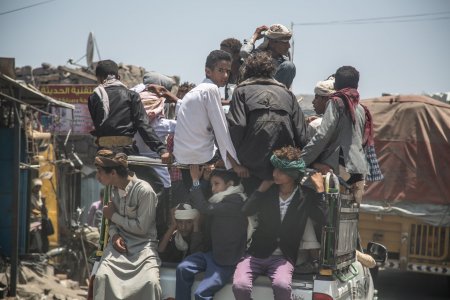 Djerabe Ndegrgar
Opinion
Djerabe Ndegrgar
Opinion
Resale of therapeutic food: who benefits from demonising mothers?
12/30/2022This article was published on December 26th, 2022 on the Souk, the MSF associative website.
Accusing the mothers of malnourished children of being lawless fraudsters is a well-worn trope in malnutrition treatment programmes worldwide – and one that has resurfaced recently in Nigeria, stirred up by health workers and the media. These types of accusations obscure a series of tricky truths on the control of resources, the quality of malnutrition treatment programmes, and on the extreme precariousness in which many families live. We see all of this in northwest Nigeria’s Katsina state, where we are currently conducting the largest malnutrition programme in the history of Médecins Sans Frontières/Doctors Without Borders (MSF).

